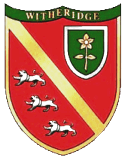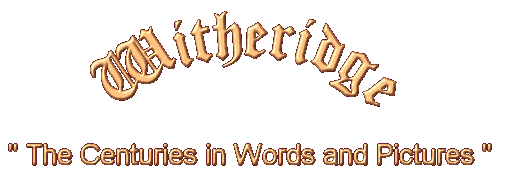

|
In November 1920 the South Molton Gazette reported that "Efforts are being made to form a football club for Witheridge" and at a well attended public meeting it was announced that Mr W Chapple of Bytham would provide a suitable field. Collectors were appointed to obtain funds, and a committee was elected to arrange a dance to be held in aid of the funds."
Three weeks later on December 18th 1920, the Gazette was able to announce that "The attempt to inaugurate a Football Club for Witheridge has proved successful. A meeting was held in the Church Room when it was decided to enrol members and elect officers. The Rev M W Melrose was elected President, and a number of Vice Presidents were nominated. Mr Stanley Leach was appointed Secretary, and Mr Gunn Treasurer, Mr Gilbert Maunder was elected temporary Captain, and Messrs F Leach, S Selley, W Baker, Edworthy and J Churchill were chosen to constitute the Committee. Until the Witheridge Recreation Ground became available in 1976, the club had to rely on the generosity of local farmers for a pitch. Venue's over the years included fields on Cannington and Chapners farms, fields on either side of the village belonging to Maunders, a field down Muxey Lane, and another further down near Yeo Woods. There was also "Way's Field", which is now the Parish Hall Field, and there may have others. The grass was cut at the discretion of the farmer, a roller was seldom, if ever, used, and cattle and sheep were not kept out just because there might be a match on Saturday. Footballers would take their shirts home to be washed, and shirts soaked with cowpat were not popular. These early matches were hardly ever postponed for wet conditions, and on occasions it sometimes took three or four kicks to get a ball out of a deep puddle.
Referees then were far more lenient with regard to the laws of the game; bookings and sending off were almost unheard of. Linesmen were non existent, which was just as well as the lines were marked out by dribbling sawdust through the fingers. At the start the club did not run to crossbars, and in the 1920s, a six year old Les Bourne would be hoisted up to attach a rope to the top of an upright and across to the top of the other. By the time Bill Cox started , around 1930, they had crossbars. The club provided shirts, Winston Maunder said they started with red and white, but this was soon changed to blue, which they stuck to for many years. Not all the players had boots, but those who didn't, played in their hob nailed working boots, and those without shorts played in long trousers. Shin pads were rolled-up magazines or newspapers, and the ball was heavy stitched leather, although Ray Grant recalls that Archie Rowcliffe (remembered as a hard man at centre half) could still kick a ball from one end of the pitch to the other. Until the 1939/45 war the Club was in the North Devon League, playing teams like Swimbridge, Filleigh, Chumleigh, Chawleigh, Rackenford and Anstey. During one match at Anstey the hunt appeared and the referee stopped the game so that all could have a good view of hounds and riders. There was also the occasional match against Drayford United (down the road from Witheridge) in the river bottoms by the Little Dart River. Four families provided most of the Drayford players, Gards, Stonemans, Venners and Woollacotts. The fact that Witheridge had a team sparked off great enthusiasm amongst the youngsters. Les Bourne recalls that the boys were allowed to join in the pre match kick about on condition that they acted as ball boys during the match. If they were slow at this they were sent home. Apart from match days they would play anywhere with pickup sides and folded jackets for goals. If they were lucky they'd have an old leather ball that the club had finished with; when it became unstitched, Joe Churchill, the saddler in the Pound House, would sew it up for them. Bert Knight had a ball for his sons, and he allowed the lads to borrow, but, if all else failed they would go to Reg Rodd, the butcher, for a pig's bladder which they could blow up and tie with string. The Square and Market Field were favourite places until the end of the twenties, when the Witheridge and Thelbridge playing field opened at the top of the village, and here they would play until it was dark. Previous Last Edited 03/07/2006 Copyright © 2000-2006 Witheridge Unless otherwise indicated on the page in question, the photographic images reproduced on this site belong to the Witheridge Archives, and, as such may not be reproduced for commercial purposes without written permission. However, you are welcome to use any of the photographs belonging to the archive for personal and/or non-commercial use. Any material shown as not being owned by the archive may not be reproduced in any form without first receiving written permission from the owner of the material in question. |



